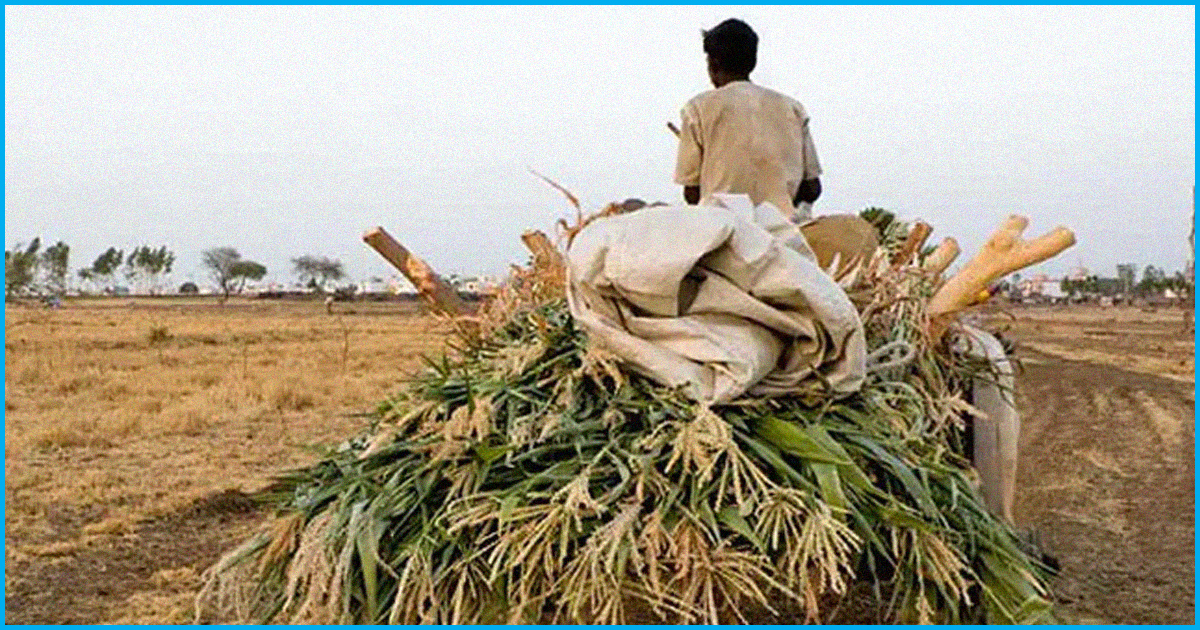
AAP Govt To Introduce MSP For Farmers Based On Swaminathan Commission Report
30 Jan 2019 4:47 AM GMT
Delhi’s Development Minister Gopal Rai said on Monday, January 28, that based on the report of the MS Swaminathan Commission, the Delhi government has decided to introduce the Minimum Support Price (MSP) for farmers. A meeting with agrarian experts will be held by the government on Tuesday, January 29, in order to discuss the matter.
MSP to be introduced Based on Swaminathan Commission Report
With around 20,000 farmers in the country’s capital, the initiative comes months ahead of the Lok Sabha elections. Rai told reporters that the commission’s report was not implemented either by the previous Congress-led UPA regime or the Modi government.
“We will hold a conference on this issue tomorrow. The three-member committee’s report will be put before experts for suggestions,” Rai said. He further had to say that once the MSP is finalised, meetings will be held by the government with farmers, and once their views are sought, it will be sent to the Cabinet, reported NDTV.
Earlier, it had been suggested by the National Commission on Farmers’ chairman M S Swaminathan to the Commission for Agricultural Costs and Prices (CACP) to fix MSP 50% more than the weighted average production cost, however, no one incorporated the recommendation in the National Policy for Farmers 2007.
However, recently, the MSP for all Kharif and Rabi crops and other commercial crops has been increased by the government, for the season 2018-2019, with a return of a minimum of 50% over production cost. This was said by the Union agriculture ministry in a statement in December last year.
The Hindustan Times reported that in the same month, the Delhi government also formulated a three-member committee to study the report and the findings were to be placed before the experts and the stakeholders at the farmers’ meet on Tuesday. “The committee has expressed that the cost of production should be calculated keeping in view the scenario of Delhi like increased wages of labour, cost of inputs and allied components in the market of the national Capital,” said the minister. Meanwhile, the committee has already calculated the cost of production of wheat, paddy and mustard in Delhi.
What is the Swaminathan Commission?
On November 18, 2004, the National Commission on Farmers (NCF) was constituted by the government of India, and it was chaired by Professor M.S. Swaminathan. Five reports were submitted to the government by it, the first being submitted in December 2004 and the last on October 4, 2006. The report suggested for farmers “faster and more inclusive growth”, as was planned in the Planning Commission’s Approach to 11th Five Year Plan.
The fifth report, apparently the most crucial and important one, suggested inclusive growth of the agricultural sector as well as farmers. The basic aim of NCF’s Swaminathan Commission Report was to work out a system for food and nutrition security, sustainability in the farming system, enhancing quality and cost competitiveness of farm commodities and to recommend measures for credit and other steps related to marketing.
The government was requested by Swaminathan to implement the report’s recommendations to provide minimum support price for grains, safeguard the interest of small farmers and address the problem of increased risk in agriculture as a profession. The commission’s key recommendations were land reforms, irrigation reforms, productivity growth, credit and insurance, food security and prevention of farmer suicides.
Farmers to get 50% over the Cost of Production
Prime Minister Narendra Modi, during his interaction with the delegates of farmers from five states on June 29, 2018, promised a stable mechanism to ensure timely payments to them.
About 100 farmers who had participated in the meeting, came from five states of India – Punjab, Karnataka, Maharashtra, Uttar Pradesh and Uttarakhand. In a bid to make the policies beneficial for the farmers, the Prime Minister reiterated his government’s resolve to ensure Minimum Support Price (MSP) 50% over the cost of production to the farmers and double their income by 2022.
PM Modi also spoke about the other steps taken by his government to overhaul the sugarcane sector including the bailout package of Rs 8,500 crore to clear cane arrears and a soft loan of Rs 4,500 crore. The PM’s meeting with sugarcane growers comes amidst various protests held by farmers demanding adequate price for their produced crop including the long-standing issues of non-payment of dues by sugar mills.
“Our government is committed to the farmers, and we will ensure each one of them gets their dues cleared in time, we will not spare any sugar mill which goes against the norms,” Sanjeev Balyan said.
The Prime Minister announced that the Union cabinet would approve the implementation of minimum support price of 150% of the input cost, in its forthcoming meeting, for the notified crops of Kharif season 2018-19,” the government said in a statement.
PK Joshi, South-Asia Director of International Food Policy Research Institute (IFPRI), told Business Standard, “I think it is a much-awaited decision (on MSP) and should be good for farmers. As far as the impact of high inflation on farmers is concerned, I don’t think it would have any impact, because, in wheat and rice, PDS operations act as a buffer against rising prices and also in other crops, too it won’t push up wholesale prices.”
With the Swaminathan report aiming for the welfare of farmers, the fact that the recommendations are being executed is indeed good news.
 All section
All section













